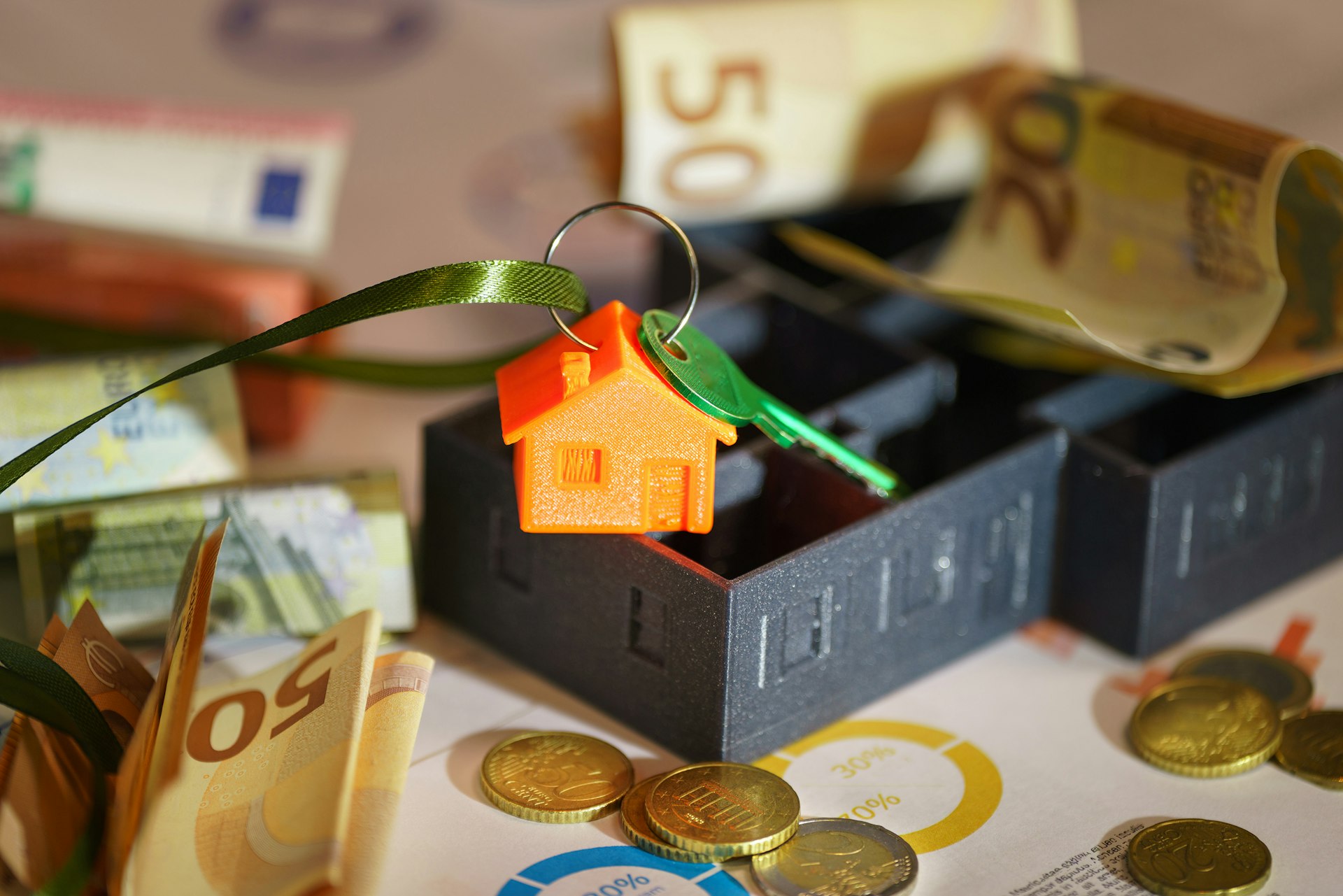How Blockchain is Transforming Real Estate Transactions: Benefits, Use Cases, and Implementation

Photo by Elena Mozhvilo on Unsplash
Introduction: Blockchain’s Game-Changing Role in Real Estate
The real estate industry, long known for its complex paperwork, slow processes, and high transaction costs, is undergoing significant transformation. Blockchain technology is at the forefront of this change, offering a more transparent, efficient, and secure way to conduct property transactions. By leveraging distributed ledgers, smart contracts, and tokenization, blockchain can simplify buying, selling, and investing in real estate for all market participants, from home buyers to global investors [1] .
Understanding Blockchain in Real Estate
At its core, blockchain is a digital, tamper-proof ledger that records every transaction in a secure and transparent way. In real estate, this means all property transactions, title transfers, and ownership histories can be stored as permanent, unalterable records. This eliminates the risk of fraud and errors, instilling greater confidence in buyers, sellers, and regulators [1] .
How Does It Work?
Transactions are validated and recorded by a network of computers. Smart contracts-self-executing agreements coded into the blockchain-automate the transfer of ownership, funds, and documentation once all conditions are met. This automation removes the need for intermediaries such as escrow agents or notaries, vastly speeding up the process [3] .
Key Benefits of Blockchain in Real Estate
1. Increased Transparency and Data Integrity: Every transaction is visible to authorized participants and cannot be altered without consensus. This traceability reduces disputes, enhances trust, and makes it easier to verify property titles and ownership history [1] .
2. Faster Transactions: Smart contracts automate many steps in the sales process, such as payments and title transfers. Deals that traditionally take weeks or months can close in days or even hours, minimizing delays and improving cash flow [4] .
3. Lower Costs: By reducing reliance on intermediaries and automating paperwork, blockchain cuts down on escrow fees, title insurance, and administrative expenses [3] .
4. Expanded Global Access: Investors are no longer restricted by geography. Blockchain platforms enable cross-border property investment, simplifying compliance and making global assets more accessible [1] .
5. Fractional Ownership and Tokenization: Tokenization divides properties into digital shares, allowing investors to purchase small fractions of high-value assets. This broadens participation and increases liquidity, as shares can be traded on secondary markets [2] .
Practical Applications and Real-World Examples
Blockchain is being actively used in several domains of real estate:
- Property Tokenization Platforms: Platforms enable the conversion of real estate assets into digital tokens, making it possible for anyone to invest small amounts in commercial buildings, condos, or development projects. This is especially valuable for property developers seeking to raise capital from global investors [5] .
- Smart Contract Driven Sales: Smart contracts automatically validate conditions such as payment receipt and title status before finalizing deals. This reduces the risk of human error and eliminates back-and-forth between lawyers and agents [4] .
- Permanent Digital Records: Blockchain securely stores all architectural plans, maintenance records, and transaction histories, providing easy access for owners, investors, and regulators [5] .
Example: Fractional Investment in Global Real Estate
Imagine a teacher in Michigan investing $100 to own a small share of a luxury apartment building in Singapore through a blockchain-powered platform. The same platform could allow a developer in Europe to raise capital from investors worldwide, bypassing traditional gatekeepers and speeding up project funding [4] .
Implementing Blockchain in Your Real Estate Transactions
If you’re interested in leveraging blockchain for property transactions, consider these steps:
- Research Licensed Blockchain Platforms: Look for platforms that are regulated and have a track record of handling real estate transactions securely. Consult legal and financial professionals to ensure compliance with local laws.
- Understand Tokenization: Evaluate if fractional ownership through tokenization aligns with your investment goals. Study how shares are issued, traded, and governed on blockchain-based systems.
- Prepare for Smart Contracts: Work with legal experts to define contract terms and ensure that all conditions are clearly coded into smart contracts. This helps avoid disputes and ensures smooth execution.
- Keep Documentation Updated: Digitize property records, title deeds, and transaction documentation. Ensure all stakeholders have access to the necessary information on the blockchain.
- Stay Informed on Regulatory Changes: Blockchain regulations can vary by country and jurisdiction. Regularly check updates from official real estate regulators or government agencies relevant to your market.
For buyers and sellers new to blockchain, you can contact your real estate agent or attorney and ask if they have experience with blockchain-based transactions. Many agencies are now exploring partnerships with technology providers who specialize in this field. You may also search for ‘blockchain real estate platforms’ and review regulatory filings and user feedback to identify reputable providers.
Potential Challenges and Solutions
Despite its advantages, blockchain adoption in real estate faces several challenges:
- Regulatory Uncertainty: Laws governing digital assets and smart contracts are evolving. Some jurisdictions may not yet recognize blockchain records as legally binding. To mitigate risk, always consult with a real estate attorney familiar with both local law and blockchain technology.
- Technical Complexity: Implementing blockchain requires technical knowledge and reliable IT infrastructure. Consider working with established technology partners or platforms with proven security credentials.
- Market Adoption: Not all buyers, sellers, or professionals are familiar with blockchain. Education and clear communication about the benefits and risks can help build trust and encourage broader adoption.
Alternative Approaches and Additional Guidance
If you’re unable to access blockchain-enabled services in your area, you can still benefit from digital innovations in real estate. Many agencies now offer online document signing, digital escrow accounts, and secure cloud storage for records. Ask your agent or attorney about these options and how they can streamline your transaction.

Photo by Jakub Żerdzicki on Unsplash
For those interested in deeper involvement, industry associations such as the National Association of Realtors and the International Blockchain Real Estate Association regularly publish updates, webinars, and guidelines. You can visit their official websites and search for ‘blockchain in real estate’ to find current reports and practical advice.
Key Takeaways
Blockchain is poised to revolutionize real estate by making transactions faster, more secure, and accessible to a broader audience. While challenges remain, the benefits of transparency, efficiency, and fractional ownership are already being realized in markets worldwide. To take advantage of these opportunities, stay informed, consult with professionals, and explore reputable blockchain platforms that align with your goals.
References
- [1] BSV Blockchain (2023). A Look Into the Impact of Blockchain in Real Estate: 6 Key Things.
- [2] BFPM Inc. (2023). Blockchain Innovations Transforming Real Estate Industry.
- [3] InApp (2024). Blockchain in Real Estate: Benefits, Use Cases, and Challenges.
- [4] Metana (2024). Real Estate Blockchain: Transforming Property Transactions.
- [5] ButterflyMX (2024). Blockchain in Real Estate: How It’s Revolutionizing the Industry.
MORE FROM searchhole.com













